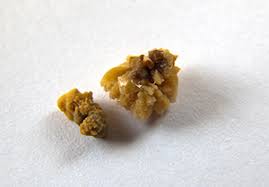 Do you have kidney stones? Your urine contains a large number of minerals and salts that it carries out of your body. But if your urine has too many of these minerals and salts, you can develop stones inside the body. Now, usually these stones are very small and don’t lead to very serious problems. However, in some cases, these stones can grow much larger and lead to more complications.
Do you have kidney stones? Your urine contains a large number of minerals and salts that it carries out of your body. But if your urine has too many of these minerals and salts, you can develop stones inside the body. Now, usually these stones are very small and don’t lead to very serious problems. However, in some cases, these stones can grow much larger and lead to more complications.
If you happen to have trouble urinating or if you are experiencing immense pain in your kidneys or near your bladder, it is most likely due to the kidney stones. If the diagnosis shows that the pain that you are experiencing is because of the stones, you should seek proper treatment immediately. But what type of treatment should you get? How many types of treatments are available for this condition?
Treatment Options for Kidney Stones
There are a lot of treatment options that you can opt for when looking for a how to treat your kidney stones. Some of these treatment options can be very simple procedures, but some can even require you to go through a surgery. So, depending on the severity of the issue (and professional advice) here are some of the treatment options you can go for.
Ureteroscopy (URS)
This simple procedure helps remove the stone from the ureter or kidney. A urologist will pass a small telescope into the bladder that goes through the urine track to check for the stones in the kidney, ureter, or even the bladder. Once they spot the stone they will start to take out the stone using specific stone removing tools.
This is a procedure that completely undergoes incisions, and doesn’t require you to be completely asleep. With the help of light anesthetic and their tools they will remove the stone and then a stent that will help you urinate easily.
Shock Wave Lithotripsy (SWL)
SWL is also a procedure that completely removes the need for a surgery and instead uses shockwaves on the stone to break it into small pieces that will pass into the urine. Urologists will first locate the stone using an X-ray, and then proceed to hit that area with shockwaves. This process requires a lot more patience and can feel a little uncomfortable due to the shockwaves. There are some side affects to this treatment like blood in the urine, and pain in the affected area after the treatment.
Percutaneous Nephrolithotomy (PCNL)
Percutaneous nephrolithotomy (PCNL) is a surgical procedure that is arguably the best procedure for larger rocks in the body. In this procedure a urologist will make an incision big enough to pass a telescope into the kidney. After locating the rock they will break it using surgical instruments and suck it out of the kidney. The suction tube often stays in place to take urine and blood out of the kidney and into a bag, all of which can happen overnight or may take a few nights.
Conclusion
Of course, these are only some of the most famous ways of getting stones out of your kidney. However, the most important part of the procedure is the urologist who will be performing it. For only the most professional and experienced urologist to handle your case, contact us today.
